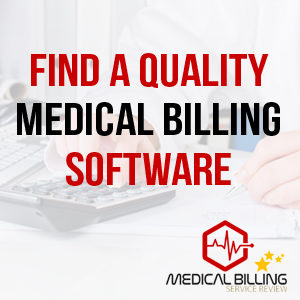
Top 5 Reasons Why Outsourcing Medical Billing Services Can Benefit Your Practice
As a healthcare provider, managing the financial aspects of your practice can be a time-consuming and complex task. Outsourcing medical billing services is a strategic decision that can improve efficiency, reduce errors, and ultimately, increase revenue. In this blog, we will discuss the top five reasons why outsourcing your medical billing services can significantly benefit your practice.
1. Improved Cash Flow and Revenue
Outsourcing medical billing services can have a direct impact on your practice’s cash flow and boost revenue. Professional medical billers are skilled in submitting clean claims and minimizing denials, resulting in quicker reimbursements and reduced accounts receivable. They can also help you stay up-to-date with changing regulations, ensuring accurate billing and maximum reimbursement.
2. Reduced Administrative Burden
Medical billing can be a labor-intensive process, requiring the constant attention of dedicated staff members. By outsourcing this function, you can free up your staff to focus on providing high-quality patient care and other essential tasks within your practice. This can also reduce the need for extensive in-house training and minimize staff turnover related to billing frustrations.

3. Enhanced Billing Compliance
Medical billing regulations are constantly evolving, and staying compliant can be a challenging task for busy healthcare providers. Outsourcing medical billing services can help ensure that your practice stays up-to-date with the latest coding and billing changes. Professional billing companies have the resources and expertise to monitor regulatory updates and implement necessary adjustments, reducing the risk of non-compliance.
4. Access to Advanced Technology
Medical billing companies utilize state-of-the-art software and technology to manage claims processing, payment tracking, and reporting. By outsourcing your billing, you gain access to these advanced tools without the need to invest in expensive software and hardware or train your staff on how to use them. This can lead to increased efficiency and a more streamlined billing process.
5. Improved Patient Satisfaction
One of the most significant benefits of outsourcing medical billing services is the positive impact it can have on patient satisfaction. With your staff freed from the burden of billing tasks, they can devote more time to addressing patient concerns and providing a higher level of care. Additionally, professional billing companies can offer dedicated customer support for billing inquiries, ensuring that your patients receive timely and accurate responses to their questions.

Outsourcing medical billing services can offer numerous advantages for healthcare providers. By improving cash flow, reducing administrative burdens, ensuring billing compliance, providing access to advanced technology, and enhancing patient satisfaction, outsourcing can be a strategic decision that positively impacts your practice’s overall performance. Consider partnering with a reputable medical billing company to help your practice thrive and focus on what matters most: delivering excellent patient care.
The Cost of Medical Billing Services and Long-Term Savings
When considering outsourcing medical billing services, it’s essential to weigh the costs against the potential benefits and long-term savings. In this section, we will discuss the average costs of medical billing services and how outsourcing can save your practice money in the long run.
Average Costs of Medical Billing Services
The cost of medical billing services can vary depending on the billing company, the scope of services offered, and the size of your practice. In general, medical billing companies charge either a percentage of your collections or a flat fee per claim.
- Percentage-based fees usually range from 4% to 9% of your practice’s collected revenue. This fee structure aligns the billing company’s interests with your practice, as they only get paid when you do.
- Flat fees per claim typically range from $1 to $7 per claim, depending on the complexity of the claim and the volume of claims submitted. This fee structure can be beneficial for practices with a high volume of claims or a stable monthly revenue.

Long-Term Savings Through Outsourcing
Outsourcing medical billing services can lead to significant long-term savings for your practice. Here are some ways outsourcing can save you money:
- Reduced staff and overhead costs: Outsourcing eliminates the need to hire, train, and retain in-house billing staff, as well as the expenses associated with their salaries, benefits, and office space.
- Decreased billing errors and denials: Professional medical billing companies have the expertise to submit clean claims with fewer errors, resulting in fewer denials and faster reimbursements. This can significantly improve your practice’s cash flow and revenue.
- Lower technology costs: By outsourcing, you gain access to advanced billing software and technology without having to invest in expensive software licenses, hardware, and IT support.
- Increased efficiency: Outsourcing allows your staff to focus on providing high-quality patient care and other essential tasks, improving overall practice efficiency and productivity.
- Reduced compliance risks: Medical billing companies stay up-to-date with changing regulations, helping to ensure your practice remains compliant and reducing the risk of costly penalties.
While there are costs associated with outsourcing medical billing services, the long-term savings can be substantial. By reducing staff and overhead expenses, minimizing billing errors and denials, lowering technology costs, increasing practice efficiency, and mitigating compliance risks, outsourcing can be a cost-effective solution that ultimately enhances your practice’s financial health. It’s essential to carefully evaluate the costs and benefits of outsourcing and choose a reputable medical billing company that aligns with your practice’s needs and goals.
Buyer’s Guide: Understanding How the Medical Billing Process Works
Navigating the world of medical billing can often seem like a daunting task, especially for those new to healthcare organizations or medical practices. However, by understanding the key components of the medical billing process, healthcare providers can more efficiently manage their revenue cycle and ensure they are properly reimbursed for their services.
Step 1: Patient Registration
The first step in the medical billing process involves registering the patient. During this step, the healthcare provider collects crucial information such as the patient’s contact details, medical history, and insurance details. Accurate patient information is essential for seamless communication with insurance companies and determining the patient’s eligibility for specific services.
Step 2: Verification of Insurance Eligibility
Once the patient’s insurance details are collected, the medical biller verifies the patient’s eligibility for the planned services. This involves checking the insurance plan details, determining the services covered, the copayment amount, and any deductible that the patient needs to fulfill.
Step 3: Medical Coding of Services
After the patient’s visit, the healthcare provider documents the services provided, including any diagnoses and procedures. These services are then translated into universal medical codes by a certified medical coder – a process known as medical coding. These codes are crucial for the billing process as they standardize medical services for interpretation by healthcare providers and insurance companies.
Step 4: Charge Entry
The next step involves entering the charges for the services provided into the patient’s account, based on the medical codes. Each service’s charge is determined by the healthcare organization’s charge description master (CDM), a comprehensive list of prices for procedures and services.
Step 5: Claim Submission
Once all services are coded and charges are entered, the biller compiles this information into a claim. This claim is then sent to the patient’s insurance company, or a third party, for reimbursement. Claims need to be accurate and compliant with coding and billing regulations to avoid denials or delays in payment.
Step 6: Payment Posting
When the insurance company processes the claim, they will send an Explanation of Benefits (EOB) to the patient and healthcare provider. The EOB details the services covered, the amount paid by the insurance, and any balance the patient is responsible for. This payment information is then posted to the patient’s account by the biller.
Step 7: Patient Billing
If there is any balance remaining after the insurance payment, the patient is billed for this amount. This could include copayments, deductibles, or services not covered by the insurance. The medical biller will send an invoice to the patient detailing the services provided and the balance due.
Step 8: Follow-Up and Collections
The final step in the medical billing process is to follow up on unpaid patient bills and send them to collections if necessary. This step is essential to ensure that healthcare organizations receive payment for all services provided.
Understanding the medical billing process is crucial for any medical practice or healthcare organization to ensure they are efficiently managing their revenue cycle and accurately billing both insurance companies and patients. This, in turn, helps them maintain financial stability and focus on what they do best – providing quality healthcare to their patients.

How Medical Billing Services Can Improve Your Bottom Line
The complexity and importance of the medical billing process cannot be overstated. Medical billing involves much more than just sending out bills and hoping for payments. It’s a comprehensive process that, when done correctly, can greatly improve a healthcare provider’s bottom line. Here’s how medical billing services can contribute to financial health and growth for your practice.
- Improved Cash Flow
An efficient medical billing service ensures that claims are processed in a timely manner and payments are collected swiftly. This steady influx of payments can significantly improve cash flow, allowing for better financial planning and resource allocation in your practice.
- Enhanced Revenue Cycle Management
Medical billing services specialize in revenue cycle management. They handle everything from patient registration and insurance verification to claim submission and follow-ups. Their expertise and dedication can reduce errors, speed up the billing process, and increase the rate of successful claims, thereby enhancing your revenue cycle.
- Cost Savings
Hiring a medical billing service can often be more cost-effective than maintaining an in-house staff for billing. These services have the necessary expertise and resources to handle large volumes of billing tasks, which can save on salaries, training, software, and other overhead costs associated with an in-house billing department.
- More Focus on Patient Care
By outsourcing medical billing tasks, healthcare providers can focus more on their primary responsibility: patient care. This not only leads to improved patient satisfaction but also can result in better patient outcomes, which in turn can attract more patients to your practice.
- Tailored Solutions for Small Practices
For small practices, partnering with a medical billing service can offer the benefits of a dedicated billing team without the high costs. These services can provide tailored solutions that meet the specific needs of small practices, ensuring that they can compete with larger healthcare organizations in terms of billing efficiency and revenue generation.
- Reduced Billing Errors
Medical billing services have the expertise to reduce billing errors, which are a common cause of claim rejections or denials. By minimizing these errors, these services can help ensure more claims are approved the first time, reducing the time and effort needed to resubmit claims.
Medical billing services can bring about substantial improvements to a healthcare provider’s bottom line. By improving efficiency, reducing errors, and enhancing revenue cycle management, these services can help healthcare providers maintain financial stability and focus on providing excellent patient care. This makes them a valuable partner for any healthcare organization or practice.
The Synergy Between Healthcare Professionals and Medical Billing Services
In order to maximize the benefits of medical billing services, it’s vital to understand the symbiotic relationship between healthcare professionals and medical billing services. They work in tandem, each contributing to the process in ways that increase efficiency and optimize revenue generation. Here’s how they can work together effectively.
- Communication is Key: Effective communication between the medical billing service and healthcare facilities is a cornerstone of successful collaboration. Healthcare professionals must provide accurate and timely information regarding patient services and treatments to the medical billing team. In turn, the billing team communicates with healthcare professionals about any issues, updates, or changes in billing processes.
- Understanding Responsibilities: Medical professionals have a full-time job providing quality care to their patients. Simultaneously managing the administrative and financial aspects of the practice can be challenging. By outsourcing billing tasks to a medical billing service, healthcare professionals can focus on patient care, while the billing service ensures that revenue cycle management operates smoothly.
- Offering Expert Advice: Medical billing services bring expertise and experience in healthcare billing, keeping up-to-date with the latest regulations and best practices. They can offer advice and recommendations to healthcare professionals to avoid common billing issues like duplicate billing or inaccurate coding, which can result in claim denials or delayed payments.
- Handling Patient Queries: Dealing with insurance claims and payments can be confusing for patients. A medical billing service often takes on the role of customer service, handling patient queries about their bills, explaining insurance benefits, and resolving any issues. This not only improves the patient experience but also saves time for healthcare professionals, who can then devote more time to patient care.
- Regular Reporting: Medical billing services provide regular reports to healthcare professionals, providing insights into the practice’s financial health, highlighting any areas of concern, and suggesting possible improvements. These reports are crucial for decision-making and strategic planning in healthcare facilities.
By understanding their respective roles and maintaining open lines of communication, healthcare professionals and medical billing services can form a successful partnership. This collaboration can lead to streamlined operations, improved financial health, and ultimately, better patient care.

Streamlining Medical Office Operations: The Role of Medical Billing Services
In today’s fast-paced healthcare environment, a medical office is not just a place where patients receive treatment. It’s also a complex operation that requires efficient management of patient data, billing, insurance claims, and more. Given the high potential for human error and the significant amount of time these tasks can take, many healthcare providers are turning to medical billing services as a solution.
Minimizing Human Error
One of the most significant benefits of a medical billing service is its ability to minimize human error in the billing process. Incorrect patient data entry, improper coding, or duplicate billing are just a few examples of mistakes that can result in denied or delayed insurance claims. A professional billing service has the expertise and tools to reduce these errors, leading to a higher rate of claim acceptance and improved cash flow.
Saving Time
Managing billing and insurance claims in-house can consume a lot of time that could be better spent on patient care or other crucial tasks within the medical office. By outsourcing these tasks to a professional service, healthcare providers can free up time for their staff to focus on what matters most: providing excellent patient care.
Managing Patient Data
Patient data management is an integral part of the billing process. Medical billing services have the systems and processes in place to handle patient data efficiently and securely, ensuring that the right information is available when needed for claim submission or patient inquiries.
Effective Handling of Account Receivables
Account receivables management is a critical component of a medical office’s financial health. A medical billing service can handle the entire account receivables process, from issuing invoices and processing payments to managing collections for overdue accounts. This ensures that healthcare providers can maintain a steady cash flow and minimize the risk of bad debt.
Strategic Outsourcing Partner
More than just a service provider, a medical billing service can be a strategic outsourcing partner for a medical office. They bring industry expertise and offer strategic insights and recommendations to help healthcare providers optimize their billing processes and enhance their revenue cycle.
Clearing Up Medical Bills
Finally, medical billing services play a key role in clearing up confusion around medical bills for patients. They can answer patient queries, explain charges and insurance benefits, and help resolve any issues. This not only improves patient satisfaction but also accelerates payment collection.
Medical billing services offer a range of benefits for medical offices. From minimizing errors and saving time to managing patient data and account receivables effectively, these services can significantly enhance a medical office’s operational efficiency and financial health. By selecting the right medical billing service, healthcare providers can focus on their primary role – providing quality healthcare to their patients.
Top 10 Best Medical Billing Services in 2023
Here, we’ve compiled a list of the top 10 medical billing services of 2023, recognized for their excellence in service, cutting-edge technology, and commitment to improving the revenue cycle management of healthcare providers.
- AdvancedMD: Known for its comprehensive software solution, AdvancedMD offers medical billing services that integrate seamlessly with its practice management, EHR, and telemedicine solutions.
- Kareo: Kareo provides medical billing services catered to small practices. It also offers a robust software platform that includes practice management, EHR, and patient engagement tools.
- CareCloud: CareCloud provides end-to-end revenue cycle management services that are tailored to meet the specific needs of each client. Its service includes coding, billing, denial management, patient collections, and more.
- eClinicalWorks: Besides offering one of the industry’s leading EHR platforms, eClinicalWorks also provides a full suite of medical billing services designed to streamline your practice’s financial processes.
- Athenahealth: athenahealth’s medical billing service is part of its broader suite of network-enabled services. Its Billing Rules Engine and team of billing experts help increase clean claim rates and speed up payment times.
- DrChrono: DrChrono offers medical billing services alongside its EHR and practice management software. Its billing team works on reducing denials, increasing collections, and improving your practice’s overall financial health.
- NextGen Healthcare: Offering comprehensive RCM services, NextGen Healthcare’s solutions integrate seamlessly with its EHR and practice management tools, enhancing workflow and revenue collection efficiency.
- Greenway Health: Greenway Health provides a comprehensive suite of medical billing services that can be customized to meet the specific needs of your practice. Its services aim to increase reimbursements and reduce denials and delays.
- ChartLogic: With a focus on specialty practices, ChartLogic offers a comprehensive suite of medical billing services to help improve efficiency, reduce denials, and accelerate revenue collection.
- MTBC: Now known as CareCloud, MTBC offers a unique blend of technology and service in its medical billing solution. It aims to streamline the billing process, enhance revenue collection, and provide transparency through detailed reporting.
Each of these medical billing services brings its unique offerings to the table. When selecting a service, it’s important to consider your practice’s specific needs and how well the service can meet those needs. Whether you prioritize seamless software integration, specialty-focused services, or patient engagement tools, there’s a medical billing service out there for you.
Outsourcing Medical Billing vs. In-house Billing: Why Outsourcing is Often the Better Choice
When it comes to medical billing, healthcare providers have two primary options: managing it in-house with a dedicated team or outsourcing it to a professional medical billing service. While both options have their merits, outsourcing is often the more beneficial choice for several reasons.
Cost Efficiency
One of the main benefits of outsourcing medical billing is the potential for cost savings. Running an in-house billing department can be expensive, considering the costs associated with hiring and training staff, purchasing and maintaining billing software, and managing the day-to-day operations of the department. Outsourcing eliminates these overhead costs, often resulting in significant savings.
Access to Expertise
Professional medical billing companies specialize in healthcare billing and coding. They employ experts who stay up-to-date with the latest regulations, coding changes, and best practices. This level of expertise is difficult to match with an in-house team without substantial investment in ongoing training and education.
Focus on Patient Care
By outsourcing medical billing, healthcare providers can free up time and resources to focus on what they do best: providing patient care. Billing is a time-consuming process that requires attention to detail and administrative skills. When healthcare professionals are relieved of this duty, they can dedicate more time to their patients.
Enhanced Cash Flow
Medical billing companies have the systems and procedures in place to optimize revenue cycle management, reduce claim denials, and expedite payments. This can lead to improved cash flow and financial stability for healthcare providers.
Greater Scalability
Outsourcing billing operations provides greater scalability for growing practices. As the patient base expands, the billing service can adjust to handle the increased workload without the need for the healthcare provider to hire more staff or invest in additional resources.
Up-to-Date Technology
Most medical billing services utilize the latest technology, including advanced billing software and automated systems, to manage their clients’ billing processes efficiently and effectively. This not only enhances accuracy but also speeds up the billing process, leading to faster reimbursements.
Compliance and Security
Medical billing companies are required to adhere to strict regulations related to patient privacy and data security, such as HIPAA. They often have robust security measures in place to protect patient data and ensure compliance, providing peace of mind to healthcare providers.

While an in-house billing team may offer more direct control, the benefits of outsourcing — including cost savings, access to expertise, enhanced focus on patient care, improved cash flow, scalability, access to the latest technology, and compliance — often make it the more advantageous choice for many healthcare providers.
Meeting Industry Standards
In the complex world of healthcare, meeting industry standards is more than just a requirement—it’s an essential component in providing quality patient care. This especially applies to administrative functions like medical billing, which plays a pivotal role in sustaining a healthcare practice.
Utilizing a medical billing service with years of experience can ensure your practice adheres to these industry standards. These professionals are well-versed in procedure codes, insurance claim submission, patient billing, and more. They bring a level of expertise that is honed through years of experience and a deep understanding of the ever-changing landscape of healthcare regulations and guidelines.
Moreover, medical billing services carry out the monotonous yet necessary administrative functions that, while not directly related to patient care, are essential for the smooth running of any medical practice. They enable healthcare providers to focus their skills and energy where it truly matters—providing excellent patient care.
Understanding how medical billing services work is integral to the operational and financial health of a medical practice. The process can appear convoluted, but with the right information and guidance, healthcare organizations can leverage these services to enhance their bottom line, improve administrative efficiency, and ultimately deliver better patient care.
Author: Mike Cynar
Mike Cynar brings buyers and sellers together by producing reviews and creating non biased webpages allowing users to share their experiences on various products and services. He and his staff write informative articles related to the medical field, legal, and other small business industries.

Leave a Reply